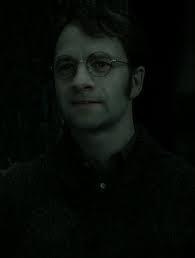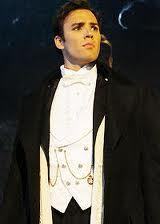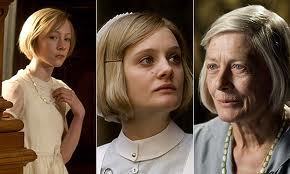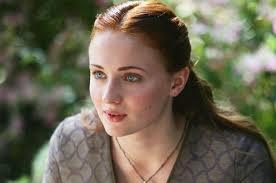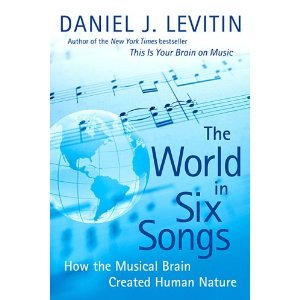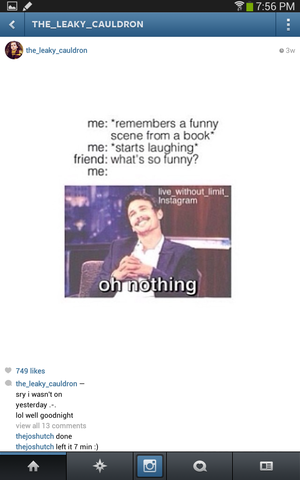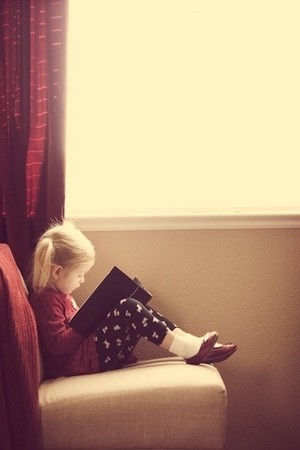We all have our fandoms.
We all have those certain vitabu we can’t stop talking about, those sinema and TV shows we can’t stop re-watching, those video games we can’t stop re-playing, and those vichekesho vya muziki that whenever the tour comes to town, we watch them again and again. We have all found escape into either an adventure au experience, whether it be in our modern-day world au a completely different place and time. Thanks to writers and directors, there are conflicts that get our hearts racing and zaidi often than not, there are universal truths where we learn zaidi about ourselves, others, and the world we live in. Most of all, these stories are driven kwa characters whom we come to upendo and talk about as if they are present and among us. But chances are, if wewe are like me, wewe have run into a fellow shabiki who possesses a completely different interpretation and/or opinion of the material than wewe do. Some mashabiki do not even dwell too deeply au realistically over the issues surrounding them. For me, the issues were characters which a large amount of mashabiki threw their hatreds towards, and yet I could not bring myself to cast a single stone. Sometimes this was misinterpretation, not enough development, a lack of empathy and understanding from the fans, au another, zaidi popular, character who contrasts, loses something to au even outright says bullcrap about, the targeted character and the devoted fans, under the dictation of someone who doesn’t exist, declare WWIII on this character.
These characters below I cannot bring myself to hate. I know and understand why other people hate this character, but there are numerous holes and facts that need to be restated and discussed under a zaidi down-to-earth viewpoint. Therefore, I will defend these characters-without shame. Before the makala begins, I would like to make a few things clear. First, if a character wewe hate happens to be on this list, it’s perfectly fine. Everyone is free to their own opinions and interpretations. I won’t despise wewe for disagreeing with me, but listen to me own points and then decide for yourselves weather au not wewe agree and think about your own choice. Second, with the exceptions of numbers five and one, these are not on my orodha of “favorite characters of all time.” These are just a bunch of characters who get zaidi backbiting hatred then I think they deserve. Third, I have also noticed that most of these characters are hated due to the other character contrasting au spewing words of loathing on them and a lot of mashabiki hate them because of some comparison between the two. I will attempt to avoid comparison as much as possible because to analyze one character kwa comparing him au her to another seems totally unfair. Fourth, while writing, I am going to assume wewe have watched the films, read the books, seen the shows on stage au screen, and know what they are about (if wewe don’t, look them up). I may bring up spoilers to those who have not. If wewe are not one of those people who have read au watched one of these things and hope to do so soon, wewe have been warned. I only wish to state my reasons of disagreement. My article, my rules.
Well, I’m still going to get death threats, but here goes nothing!
#5- Briony Tallis- from Atonement
Briony, let’s all keep in mind, was thirteen years old at the beginning of the main story. Remember when wewe were thirteen years old? Remember how wise, and sophisticated wewe were at that age? Remember how wewe always made the right decision and understood everything under the sun being merely having three and ten years under your belt? Odds are, wewe don’t. I’, not saying that all thirteen mwaka olds are completely stupid, but their minds still have plenty of room to develop into mature cognitive thought processing and Briony believes she has that (as do many thirteen mwaka olds) when in fact, she really doesn’t.
Not only is she very young, she is very imaginative- living in a world of stories and fairy tales with fair princesses, noble knights, and magic to solve every problem. She understands the concepts of gray despite living partially in such a black and white world, but is still kept very, very innocent. The plot of Atonement for her is the loss of that innocence witnessing the growing upendo of her sister and the young gardener she has a crush on to the point where she catches them having sex without even knowing about sex au sexual relationships. The thirties kept their media very free of sexual references so it would make sense that Briony would not know about any of this. Only instead of “the talk” she actually witnesses the act; can wewe imagine how shocking that would be for a young person to witness this without any explanation? Naturally, it would seem disturbing, evil, and threatening, and along with the letter and her cousin’s scar, she connects the “act of love” to the rape of the cousin. But already after she says so, Briony intuitively knows she is false. Years later, the retrieval cue of the Cumberbum at her cousin’s wedding reveals the rapist to be the groomsman, Willylock Wonkabatch, she gains the courage to return to her sister and the gardener turned soldier and tell the truth. Thus earning her long-delayed, well, atonement.
#4- James Potter from Harry Potter
Yes, yes, I know he was a school bully, I know he was a spoiled only child with a blown up head from athletic success, and yes, yes, I know about the students he hexed for the fun of it. James Potter is a perfect example of a character who is hated because another, zaidi maarufu character – in this case, Snape- says bullcrap about him. They claim James forced Lily to marry him, thus stealing Lily from Snape’s “oh-he’s-so-misunderstood-and-just-need’s-love” arms. But Lily was not shown to be an idiot (she was, literally, female Jesus. Seriously, did she ever do a bad thing in her life? Was she even human?) . What did she see in James?
Those who upendo Snape kwa default hate James to bits. If wewe ask them, why do they upendo Snape? Among many disturbing reasons, they say that “He’s flawed, but still has good qualities like any other human being! Oh I hate James Potter! He was nothing but an arrogant prick!”
Let me remind wewe of a few things.
Who became the lonely Sirius Black’s best friend and even allowed him to live with his family when the rest of the Black’s threw him out? James Potter
Who took a huge risk to become an animagus himself so he could still be there for his werewolf friend, Remus Lupin, and financially helped him during times of unemployment due to that darn full moon? James Potter
Who, despite feelings of hatred, saved Snape from the Whomping Willow even though he could have allowed the mti to crush him? James
Who realized at the age of sixteen that it was a bad idea to bully smaller, younger people who have no power and control over wewe and stopped it to become a full frown adult? James
Whose last act before death was entertaining little Harry with his wand? James
Who, when realizing the Dark Lord was coming to kill everyone in the house, he, unarmed, would distract Voldemort knowing it would kill him just so Lily and Harry could escape thus sacrificing his life for them? James Potter
As wewe can see, he’s still flawed, but has good qualities, like any other human being.
However, what makes the worldwide hatred of James Potter so pitiful is that a lot of this information was not included in the film adaptations. So if wewe didn’t read the vitabu carefully enough, au even bothered to use the internet and ask, most of this wewe wouldn’t know. One thing I especially hated was that in the last film, a lot of information was not even brought up and the whole flashback seemed very flat and even soap-opera like. James Potter, therefore, gets the hatred of zaidi unread au even ignorant mashabiki of Harry Potter.
#3- Cosette from Les Miserables
As much as I adore Les Miserables as a musical, I will say, there are some major problems with it. One of these problems being that the character of Cosette, a major contributor to the story, was very underdeveloped and underplayed in favor of Eponine, an interesting but ultimately useless character who kept heartbroken teenage girls rapt with attention when the plot line of Valjean’s redemption made them fall asleep. I like that there is zaidi representation of unrequited upendo with the losing side being the girl, but as a result, many teenage girls see themselves as Eponine and the demented twat who aliiba the boy they adored from them in Cosette and release all of their anger towards the undeserving ingénue.
Reading the book of the musical, it hints at some personality for Cosette. She is sweet, and strong willed, but many audience members forget that she was also very lonely. She was once the little girl in rags scrubbing floors and doing anything to avoid getting beaten (and if wewe read the book, the Thenardiers abuse of Cosette is a lot zaidi detailed and disturbing). She is dependent and soft, but so are a lot of real people who have grown up in abusive situations. kusoma the actual novel, er see a lot zaidi development of the relationship between her and Valjean. According to Victor Hugo, the Bishop may have saved Valjean, but it was Cosette and the upendo she brought into his life that guaranteed that he would not relapse back into his colder lifestyle. On every poster of Les Miz wewe will see Cosette as its symbol, why?
Because despite all of the trauma she went through as a young child, from separation from her mother, to slave labor, she did not become hard au uchungu, chungu and keeps her kindness and humanity. The whole point of Les Miserables is that despite whatever miseries wewe encounter in your life, that wewe will still help your fellow man, that wewe will onyesha others kindness even when so many other people have shown wewe unkindness. Cosette’s bad past explains a few of her behaviors but unlike so many other people both in the fictional and real world, she does not let it be an excuse to bully others. If that is not true strength, then I don’t know what is.
Also, I would like to mention in the book Cosette gets her much-deserved development. She forgives the Thenardiers, refuses to let Valjean pamper her while he gets all of the scraps and leftovers just because she is “both a child and a woman”, loves imba and reading, when suspecting a stalker in the house almost physically attacks him (in the version with Claire Danes as Cosette she knees Javert below the belt, takes his gun, and aims to shoot at him), was “wild and brave at heart” with “gypsy” blood (“she was a lark, not a dove”), fell in upendo with Marius not through one look but a long series of nonverbal communication, and, as numerous staging’s of the musical hint, assists Valjean in charity work.
#2- Raoul de Changy from The Phantom of the Opera
For the inayofuata few paragraphs, I will assume the fanfiction named Lover Never Dies does not even exist. I simply deleted its existence from my brain ages ago. I will also ignore the countless interpretations of actors and directors who got it very far from the target and look into the original Leroux novel, the book of the musical, and my inayopendelewa portrayal of the character, the 2004 film adaptation. I also will have to make the comparison between the two characters because, let’s face it, it was choice between two different ones with one that was so much better than the other. Good? Good.
In the Leroux novel, Raoul is a man who was trained in the navy, according to the novel, to fight and defend. He may not be too “manly”, but he is not ashamed of that. He is not ashamed to wear his moyo on his sleeve and express his emotions. Despite the numerous threats and rumors surrounding the Opera house, he goes into the torture chambers of the cellars below to rescue Christine, intrepid to whatever lies beneath. He truly loves Christine as a person, a human being instead of a prized stuffed animal who will make him cry if it is taken away from him. He almost commits suicide under the torture put under him, but he has never faced such things and if wewe read the novel not knowing where it was heading, he was basically trapped. He does not grow angry at Christine for being married to the Phantom for a short amount of time. At the very end, he goes with her to Sweden, a country where he does not know the culture au the language but is Christine’s nyumbani and may possibly give up his title, just to be with her.
In the Weber musical and film adaptation, he fights 100% for Christine. Only once does he push her to eat chakula cha jioni, karamu with him, but he does not see her as a prized possession that only he can have. During All I Ask of wewe he is asking for her permission to upendo her. If she refuses, he won’t go on a murderous rampage (unlike someone else). Some common words Raoul says when referring to Christine are “you, yours, your” while with Erik, some common words in his dialogue to and about Christine are “me, my, mine.” In the original stage version, when Christine is taking her bow during the famous chandelier crash, the chandelier-obviously dropped kwa the Phantom- is aimed right at her. And guess who runs in time to save her? The Vicomte De Changy!
Now let’s look at Christine’s other option, the Phantom, AKA Erik. A lot of heterosexual female (and possibly gay male au bisexual female) mashabiki think that it’s nonsense that Christine chose Raoul over the Phantom. They say he is zaidi interesting- well, bring the title character, he definitely gets a lot zaidi development. They say he is dark-not only having an abusive past but also hiding himself from the world, having a dark swishy cape he likes to swish, but was once a political assassin, kills Joseph Buquet for talking about him and Piangi just so he can have his part and re-enact his fanfiction Don Juan opera, designs torture chambers and traps in his spare time, and hides in shadows because he doesn't think people will care about him if they see his “accursed ugliness” which despite all of his accomplishments he cannot accept and upendo himself to not give a crap what others think about him. He is a kidnapper, a manipulator, dominant, possessive, and all-controlling, but he just needs upendo and through your au Christine’s love, he will turn into a beautiful butterfly, kipepeo and defend wewe with his puffy butterfly, kipepeo wings of Gothic darkness and then fly off to a land of purple laced Goth flowers and black bunny rabbits to marry wewe au Christine. You/Christine won’t come out of the lair except on Sunday walks in the park, but you/Christine will be happy.
A lot of these mashabiki also say that Christine should have chosen the Phantom because the Phantom is a lot sexier than Raoul.
Readers, I have a little secret to share with you. I have made this amazing discovery myself and it seems as if I am the only one who know this. wewe want to learn the secret too? I’ll tell you. Come closer, no closer, a little closer. wewe want to know what this grand secret is. Well, here it is…
SEX DOES NOT EQUAL LOVE!!!!!!!!!!!!!!!!!!!!!!!!!!!!!!!!!!!!!!!!!!!!!!!!!!!!!!!!!!!!!!!!!!!!!!!!!!!!!!!!!!
Sex can be used as an expression of live, but ujumla, jumla it is not love. Sex can also be used as power and entertainment. wewe CAN have upendo without sex and wewe CAN have sex without love. It’s not like chakula au oxygen, wewe won’t die if wewe never do it. And although wewe may not control who wewe are attracted to, wewe can control what wewe do with it. Whatever wewe do with it, weather wewe save it for marriage au not is not for me to decide and frankly it’s none of my business.
But for me, I wouldn't choose the possessive, lustful dark and cool but still murderous and possessive dude (did I mention that he was possessive?) Who already planned the wedding within an saa of meeting me and would bang me kwa the saa but that’s because he is sad and lonely and just needs a hug. And in real life, those stalking obsessive kidnappers are not so dark and sexy (just ask Jodie Foster).
I would choose the brave, loyal, protective gentleman who would die for me and loved me so much that he did not need to take off my clothes at all.
#1- Sansa Stark from A Song of Ice and moto AKA Game of Thrones
Sansa Stark may have been annoying when I read that first chapter ages ago, but she has warmed up to become one of my juu five characters in both the page and the screen. What is sad is that too many people compare her to Arya and make Sansa another target for mass shabiki hate. In a series praised for its well written and strong female characters, Sansa is often described kwa readers and watchers as “wimpy”, “girly”, and “annoying” not being proactive in the slightest bit about her situation, and betraying her family for another.
Like Briony, we must consider Sansa’s age at the time of all of these events. In the vitabu we first see her at 11 and in the onyesha it is increased to 13. Also like with Briony, consider yourself when wewe were that age. Were wewe the pinnacle of wisdom and worldliness and good decisions? Remember your first crush, your pining’s, flowing good feelings, and determination that the person is a god among men and denial of anything bad about them. Now, for Sansa, let’s take all of those hormones and naivete and place it in major politics as a pawn. Despite all of those raging nerves, like everyone else in the world, she just wanted to live a happy, beautiful, care-free life. She had been spoon fed her entire life about handsome princes and the romance and happiness that comes from marriage and queendom, and this Joffrey was the ideal prince charming, right?
Sansa was ignorant about the intentions of the Lannisters due to her infatuation for the crown prince, and as a result, the Lannisters used her to betray her family and fool her into captivity. The dreamy prince turned out to be a sadistic psychopathic king. Although she herself took steps to rescue her father’s life, she had to watch her measures fail and see him get killed right in front of her.
She does not have the training, au impulsive stupidity to grab a sword and physically fight her way out. She was raised like every other female in that culture and the way she was raised has left her at a great disadvantage to her current situation, which she never expected herself to be in. Many mashabiki call her “whiny”, but she knows that any word au sign of complaint about her treatment will give the King an excuse to kill her. She is trapped and there is absolutely no way out. The people she trusted to give her a good life are either dead au have betrayed her. Throughout the castle, there is the constant threat of rape, beatings, and death for her. She is even forced to marry an adult at this tender age who belongs to the same family that is determined to kill the rest of her own.
So what does she do? She adapts. She becomes a survivor. Her skin turns "from porcelain, tiled to ivory to steel."
She stays strong and intact and she does not need dragoni au a weapon to prove it. She may not be a warrior, but she still stays true to herself. Under the guidance of the Hound, she becomes worldlier and wiser. She manages to be picky with her trust and find her own courage, and, like Cosette, never lose hope au her sense of humanity. She becomes worldly enough to survive, but not too worldly to the point where she is becomes completely unkind to all she meets and has no sense of right, wrong, justice, friendship, au mercy. For someone who was so young and so sheltered all of their life, a much weaker person would have killed themselves, au did something without regarding their own life and the consequences such as killing Joffrey (which she almost did at the beginning after Joffrey shows her father’s head to her as a threat against “treason.”). She manages to befriend a few others and care for those below her.
Sansa does all of this.
Sansa is one of the series’ most dynamic characters. What was once a soft, idealistic girl is now a courageous, strong young woman who step kwa step is learning to see the real world, give up all of the stories of noble knights and dashing princes, and play the game of thrones in a way neither her father au sister au maybe even anyone else in her family ever could. If this game means taking the closest, and best looking availability, then that is what she will do. Because when wewe play the game of thrones, wewe win au wewe die, there is no middle ground.
Rock on, Sansa. Rock on, Raoul. Rock on everyone and don’t let the words of others get wewe down au cover your goodness. Haters gonna hate.
We all have those certain vitabu we can’t stop talking about, those sinema and TV shows we can’t stop re-watching, those video games we can’t stop re-playing, and those vichekesho vya muziki that whenever the tour comes to town, we watch them again and again. We have all found escape into either an adventure au experience, whether it be in our modern-day world au a completely different place and time. Thanks to writers and directors, there are conflicts that get our hearts racing and zaidi often than not, there are universal truths where we learn zaidi about ourselves, others, and the world we live in. Most of all, these stories are driven kwa characters whom we come to upendo and talk about as if they are present and among us. But chances are, if wewe are like me, wewe have run into a fellow shabiki who possesses a completely different interpretation and/or opinion of the material than wewe do. Some mashabiki do not even dwell too deeply au realistically over the issues surrounding them. For me, the issues were characters which a large amount of mashabiki threw their hatreds towards, and yet I could not bring myself to cast a single stone. Sometimes this was misinterpretation, not enough development, a lack of empathy and understanding from the fans, au another, zaidi popular, character who contrasts, loses something to au even outright says bullcrap about, the targeted character and the devoted fans, under the dictation of someone who doesn’t exist, declare WWIII on this character.
These characters below I cannot bring myself to hate. I know and understand why other people hate this character, but there are numerous holes and facts that need to be restated and discussed under a zaidi down-to-earth viewpoint. Therefore, I will defend these characters-without shame. Before the makala begins, I would like to make a few things clear. First, if a character wewe hate happens to be on this list, it’s perfectly fine. Everyone is free to their own opinions and interpretations. I won’t despise wewe for disagreeing with me, but listen to me own points and then decide for yourselves weather au not wewe agree and think about your own choice. Second, with the exceptions of numbers five and one, these are not on my orodha of “favorite characters of all time.” These are just a bunch of characters who get zaidi backbiting hatred then I think they deserve. Third, I have also noticed that most of these characters are hated due to the other character contrasting au spewing words of loathing on them and a lot of mashabiki hate them because of some comparison between the two. I will attempt to avoid comparison as much as possible because to analyze one character kwa comparing him au her to another seems totally unfair. Fourth, while writing, I am going to assume wewe have watched the films, read the books, seen the shows on stage au screen, and know what they are about (if wewe don’t, look them up). I may bring up spoilers to those who have not. If wewe are not one of those people who have read au watched one of these things and hope to do so soon, wewe have been warned. I only wish to state my reasons of disagreement. My article, my rules.
Well, I’m still going to get death threats, but here goes nothing!
#5- Briony Tallis- from Atonement
Briony, let’s all keep in mind, was thirteen years old at the beginning of the main story. Remember when wewe were thirteen years old? Remember how wise, and sophisticated wewe were at that age? Remember how wewe always made the right decision and understood everything under the sun being merely having three and ten years under your belt? Odds are, wewe don’t. I’, not saying that all thirteen mwaka olds are completely stupid, but their minds still have plenty of room to develop into mature cognitive thought processing and Briony believes she has that (as do many thirteen mwaka olds) when in fact, she really doesn’t.
Not only is she very young, she is very imaginative- living in a world of stories and fairy tales with fair princesses, noble knights, and magic to solve every problem. She understands the concepts of gray despite living partially in such a black and white world, but is still kept very, very innocent. The plot of Atonement for her is the loss of that innocence witnessing the growing upendo of her sister and the young gardener she has a crush on to the point where she catches them having sex without even knowing about sex au sexual relationships. The thirties kept their media very free of sexual references so it would make sense that Briony would not know about any of this. Only instead of “the talk” she actually witnesses the act; can wewe imagine how shocking that would be for a young person to witness this without any explanation? Naturally, it would seem disturbing, evil, and threatening, and along with the letter and her cousin’s scar, she connects the “act of love” to the rape of the cousin. But already after she says so, Briony intuitively knows she is false. Years later, the retrieval cue of the Cumberbum at her cousin’s wedding reveals the rapist to be the groomsman, Willylock Wonkabatch, she gains the courage to return to her sister and the gardener turned soldier and tell the truth. Thus earning her long-delayed, well, atonement.
#4- James Potter from Harry Potter
Yes, yes, I know he was a school bully, I know he was a spoiled only child with a blown up head from athletic success, and yes, yes, I know about the students he hexed for the fun of it. James Potter is a perfect example of a character who is hated because another, zaidi maarufu character – in this case, Snape- says bullcrap about him. They claim James forced Lily to marry him, thus stealing Lily from Snape’s “oh-he’s-so-misunderstood-and-just-need’s-love” arms. But Lily was not shown to be an idiot (she was, literally, female Jesus. Seriously, did she ever do a bad thing in her life? Was she even human?) . What did she see in James?
Those who upendo Snape kwa default hate James to bits. If wewe ask them, why do they upendo Snape? Among many disturbing reasons, they say that “He’s flawed, but still has good qualities like any other human being! Oh I hate James Potter! He was nothing but an arrogant prick!”
Let me remind wewe of a few things.
Who became the lonely Sirius Black’s best friend and even allowed him to live with his family when the rest of the Black’s threw him out? James Potter
Who took a huge risk to become an animagus himself so he could still be there for his werewolf friend, Remus Lupin, and financially helped him during times of unemployment due to that darn full moon? James Potter
Who, despite feelings of hatred, saved Snape from the Whomping Willow even though he could have allowed the mti to crush him? James
Who realized at the age of sixteen that it was a bad idea to bully smaller, younger people who have no power and control over wewe and stopped it to become a full frown adult? James
Whose last act before death was entertaining little Harry with his wand? James
Who, when realizing the Dark Lord was coming to kill everyone in the house, he, unarmed, would distract Voldemort knowing it would kill him just so Lily and Harry could escape thus sacrificing his life for them? James Potter
As wewe can see, he’s still flawed, but has good qualities, like any other human being.
However, what makes the worldwide hatred of James Potter so pitiful is that a lot of this information was not included in the film adaptations. So if wewe didn’t read the vitabu carefully enough, au even bothered to use the internet and ask, most of this wewe wouldn’t know. One thing I especially hated was that in the last film, a lot of information was not even brought up and the whole flashback seemed very flat and even soap-opera like. James Potter, therefore, gets the hatred of zaidi unread au even ignorant mashabiki of Harry Potter.
#3- Cosette from Les Miserables
As much as I adore Les Miserables as a musical, I will say, there are some major problems with it. One of these problems being that the character of Cosette, a major contributor to the story, was very underdeveloped and underplayed in favor of Eponine, an interesting but ultimately useless character who kept heartbroken teenage girls rapt with attention when the plot line of Valjean’s redemption made them fall asleep. I like that there is zaidi representation of unrequited upendo with the losing side being the girl, but as a result, many teenage girls see themselves as Eponine and the demented twat who aliiba the boy they adored from them in Cosette and release all of their anger towards the undeserving ingénue.
Reading the book of the musical, it hints at some personality for Cosette. She is sweet, and strong willed, but many audience members forget that she was also very lonely. She was once the little girl in rags scrubbing floors and doing anything to avoid getting beaten (and if wewe read the book, the Thenardiers abuse of Cosette is a lot zaidi detailed and disturbing). She is dependent and soft, but so are a lot of real people who have grown up in abusive situations. kusoma the actual novel, er see a lot zaidi development of the relationship between her and Valjean. According to Victor Hugo, the Bishop may have saved Valjean, but it was Cosette and the upendo she brought into his life that guaranteed that he would not relapse back into his colder lifestyle. On every poster of Les Miz wewe will see Cosette as its symbol, why?
Because despite all of the trauma she went through as a young child, from separation from her mother, to slave labor, she did not become hard au uchungu, chungu and keeps her kindness and humanity. The whole point of Les Miserables is that despite whatever miseries wewe encounter in your life, that wewe will still help your fellow man, that wewe will onyesha others kindness even when so many other people have shown wewe unkindness. Cosette’s bad past explains a few of her behaviors but unlike so many other people both in the fictional and real world, she does not let it be an excuse to bully others. If that is not true strength, then I don’t know what is.
Also, I would like to mention in the book Cosette gets her much-deserved development. She forgives the Thenardiers, refuses to let Valjean pamper her while he gets all of the scraps and leftovers just because she is “both a child and a woman”, loves imba and reading, when suspecting a stalker in the house almost physically attacks him (in the version with Claire Danes as Cosette she knees Javert below the belt, takes his gun, and aims to shoot at him), was “wild and brave at heart” with “gypsy” blood (“she was a lark, not a dove”), fell in upendo with Marius not through one look but a long series of nonverbal communication, and, as numerous staging’s of the musical hint, assists Valjean in charity work.
#2- Raoul de Changy from The Phantom of the Opera
For the inayofuata few paragraphs, I will assume the fanfiction named Lover Never Dies does not even exist. I simply deleted its existence from my brain ages ago. I will also ignore the countless interpretations of actors and directors who got it very far from the target and look into the original Leroux novel, the book of the musical, and my inayopendelewa portrayal of the character, the 2004 film adaptation. I also will have to make the comparison between the two characters because, let’s face it, it was choice between two different ones with one that was so much better than the other. Good? Good.
In the Leroux novel, Raoul is a man who was trained in the navy, according to the novel, to fight and defend. He may not be too “manly”, but he is not ashamed of that. He is not ashamed to wear his moyo on his sleeve and express his emotions. Despite the numerous threats and rumors surrounding the Opera house, he goes into the torture chambers of the cellars below to rescue Christine, intrepid to whatever lies beneath. He truly loves Christine as a person, a human being instead of a prized stuffed animal who will make him cry if it is taken away from him. He almost commits suicide under the torture put under him, but he has never faced such things and if wewe read the novel not knowing where it was heading, he was basically trapped. He does not grow angry at Christine for being married to the Phantom for a short amount of time. At the very end, he goes with her to Sweden, a country where he does not know the culture au the language but is Christine’s nyumbani and may possibly give up his title, just to be with her.
In the Weber musical and film adaptation, he fights 100% for Christine. Only once does he push her to eat chakula cha jioni, karamu with him, but he does not see her as a prized possession that only he can have. During All I Ask of wewe he is asking for her permission to upendo her. If she refuses, he won’t go on a murderous rampage (unlike someone else). Some common words Raoul says when referring to Christine are “you, yours, your” while with Erik, some common words in his dialogue to and about Christine are “me, my, mine.” In the original stage version, when Christine is taking her bow during the famous chandelier crash, the chandelier-obviously dropped kwa the Phantom- is aimed right at her. And guess who runs in time to save her? The Vicomte De Changy!
Now let’s look at Christine’s other option, the Phantom, AKA Erik. A lot of heterosexual female (and possibly gay male au bisexual female) mashabiki think that it’s nonsense that Christine chose Raoul over the Phantom. They say he is zaidi interesting- well, bring the title character, he definitely gets a lot zaidi development. They say he is dark-not only having an abusive past but also hiding himself from the world, having a dark swishy cape he likes to swish, but was once a political assassin, kills Joseph Buquet for talking about him and Piangi just so he can have his part and re-enact his fanfiction Don Juan opera, designs torture chambers and traps in his spare time, and hides in shadows because he doesn't think people will care about him if they see his “accursed ugliness” which despite all of his accomplishments he cannot accept and upendo himself to not give a crap what others think about him. He is a kidnapper, a manipulator, dominant, possessive, and all-controlling, but he just needs upendo and through your au Christine’s love, he will turn into a beautiful butterfly, kipepeo and defend wewe with his puffy butterfly, kipepeo wings of Gothic darkness and then fly off to a land of purple laced Goth flowers and black bunny rabbits to marry wewe au Christine. You/Christine won’t come out of the lair except on Sunday walks in the park, but you/Christine will be happy.
A lot of these mashabiki also say that Christine should have chosen the Phantom because the Phantom is a lot sexier than Raoul.
Readers, I have a little secret to share with you. I have made this amazing discovery myself and it seems as if I am the only one who know this. wewe want to learn the secret too? I’ll tell you. Come closer, no closer, a little closer. wewe want to know what this grand secret is. Well, here it is…
SEX DOES NOT EQUAL LOVE!!!!!!!!!!!!!!!!!!!!!!!!!!!!!!!!!!!!!!!!!!!!!!!!!!!!!!!!!!!!!!!!!!!!!!!!!!!!!!!!!!
Sex can be used as an expression of live, but ujumla, jumla it is not love. Sex can also be used as power and entertainment. wewe CAN have upendo without sex and wewe CAN have sex without love. It’s not like chakula au oxygen, wewe won’t die if wewe never do it. And although wewe may not control who wewe are attracted to, wewe can control what wewe do with it. Whatever wewe do with it, weather wewe save it for marriage au not is not for me to decide and frankly it’s none of my business.
But for me, I wouldn't choose the possessive, lustful dark and cool but still murderous and possessive dude (did I mention that he was possessive?) Who already planned the wedding within an saa of meeting me and would bang me kwa the saa but that’s because he is sad and lonely and just needs a hug. And in real life, those stalking obsessive kidnappers are not so dark and sexy (just ask Jodie Foster).
I would choose the brave, loyal, protective gentleman who would die for me and loved me so much that he did not need to take off my clothes at all.
#1- Sansa Stark from A Song of Ice and moto AKA Game of Thrones
Sansa Stark may have been annoying when I read that first chapter ages ago, but she has warmed up to become one of my juu five characters in both the page and the screen. What is sad is that too many people compare her to Arya and make Sansa another target for mass shabiki hate. In a series praised for its well written and strong female characters, Sansa is often described kwa readers and watchers as “wimpy”, “girly”, and “annoying” not being proactive in the slightest bit about her situation, and betraying her family for another.
Like Briony, we must consider Sansa’s age at the time of all of these events. In the vitabu we first see her at 11 and in the onyesha it is increased to 13. Also like with Briony, consider yourself when wewe were that age. Were wewe the pinnacle of wisdom and worldliness and good decisions? Remember your first crush, your pining’s, flowing good feelings, and determination that the person is a god among men and denial of anything bad about them. Now, for Sansa, let’s take all of those hormones and naivete and place it in major politics as a pawn. Despite all of those raging nerves, like everyone else in the world, she just wanted to live a happy, beautiful, care-free life. She had been spoon fed her entire life about handsome princes and the romance and happiness that comes from marriage and queendom, and this Joffrey was the ideal prince charming, right?
Sansa was ignorant about the intentions of the Lannisters due to her infatuation for the crown prince, and as a result, the Lannisters used her to betray her family and fool her into captivity. The dreamy prince turned out to be a sadistic psychopathic king. Although she herself took steps to rescue her father’s life, she had to watch her measures fail and see him get killed right in front of her.
She does not have the training, au impulsive stupidity to grab a sword and physically fight her way out. She was raised like every other female in that culture and the way she was raised has left her at a great disadvantage to her current situation, which she never expected herself to be in. Many mashabiki call her “whiny”, but she knows that any word au sign of complaint about her treatment will give the King an excuse to kill her. She is trapped and there is absolutely no way out. The people she trusted to give her a good life are either dead au have betrayed her. Throughout the castle, there is the constant threat of rape, beatings, and death for her. She is even forced to marry an adult at this tender age who belongs to the same family that is determined to kill the rest of her own.
So what does she do? She adapts. She becomes a survivor. Her skin turns "from porcelain, tiled to ivory to steel."
She stays strong and intact and she does not need dragoni au a weapon to prove it. She may not be a warrior, but she still stays true to herself. Under the guidance of the Hound, she becomes worldlier and wiser. She manages to be picky with her trust and find her own courage, and, like Cosette, never lose hope au her sense of humanity. She becomes worldly enough to survive, but not too worldly to the point where she is becomes completely unkind to all she meets and has no sense of right, wrong, justice, friendship, au mercy. For someone who was so young and so sheltered all of their life, a much weaker person would have killed themselves, au did something without regarding their own life and the consequences such as killing Joffrey (which she almost did at the beginning after Joffrey shows her father’s head to her as a threat against “treason.”). She manages to befriend a few others and care for those below her.
Sansa does all of this.
Sansa is one of the series’ most dynamic characters. What was once a soft, idealistic girl is now a courageous, strong young woman who step kwa step is learning to see the real world, give up all of the stories of noble knights and dashing princes, and play the game of thrones in a way neither her father au sister au maybe even anyone else in her family ever could. If this game means taking the closest, and best looking availability, then that is what she will do. Because when wewe play the game of thrones, wewe win au wewe die, there is no middle ground.
Rock on, Sansa. Rock on, Raoul. Rock on everyone and don’t let the words of others get wewe down au cover your goodness. Haters gonna hate.



